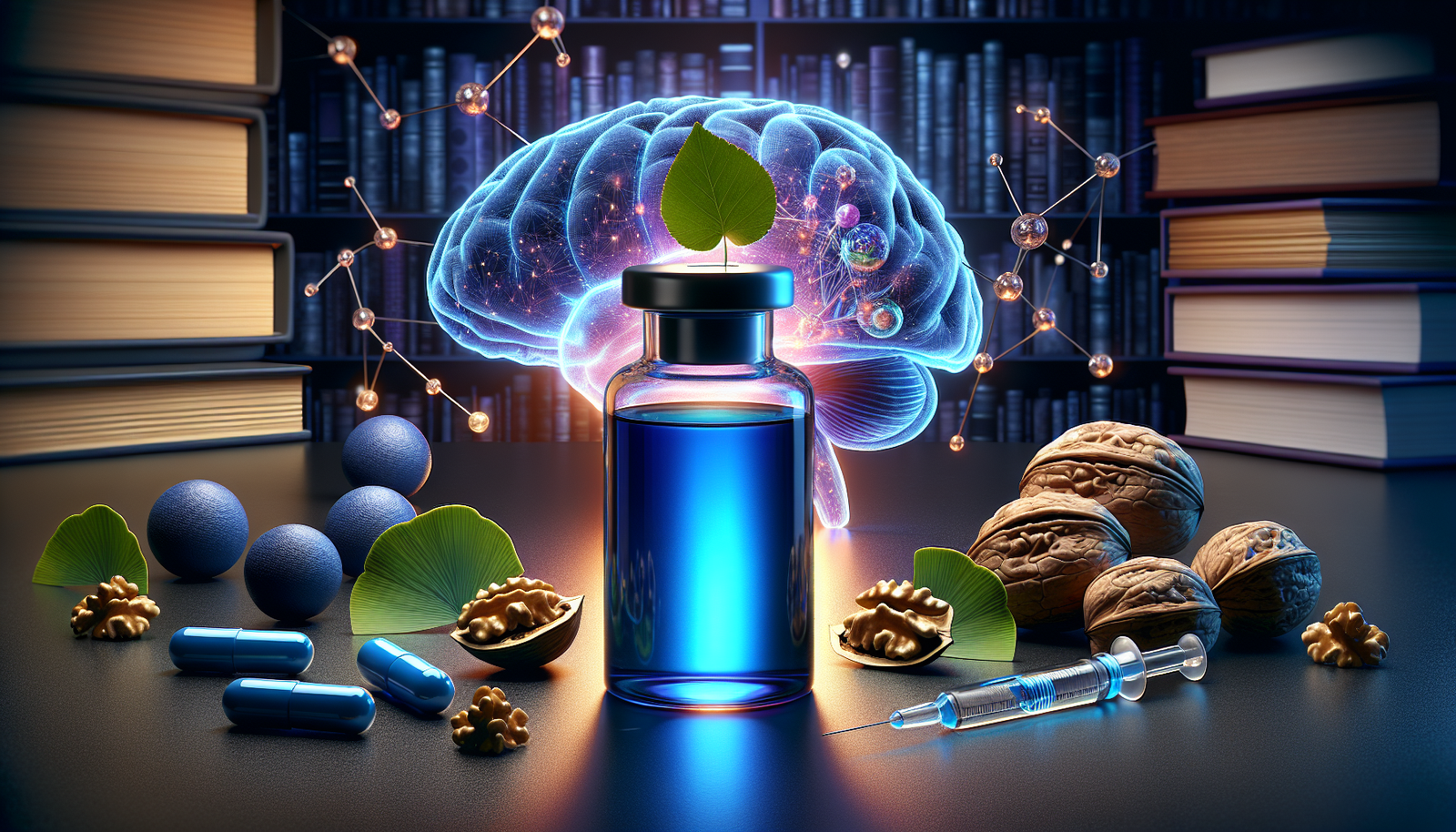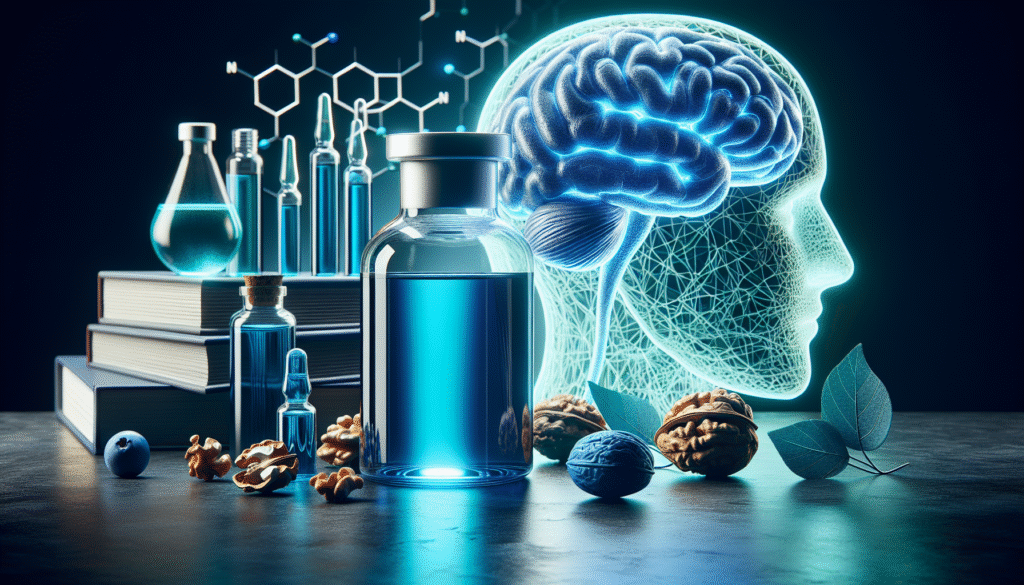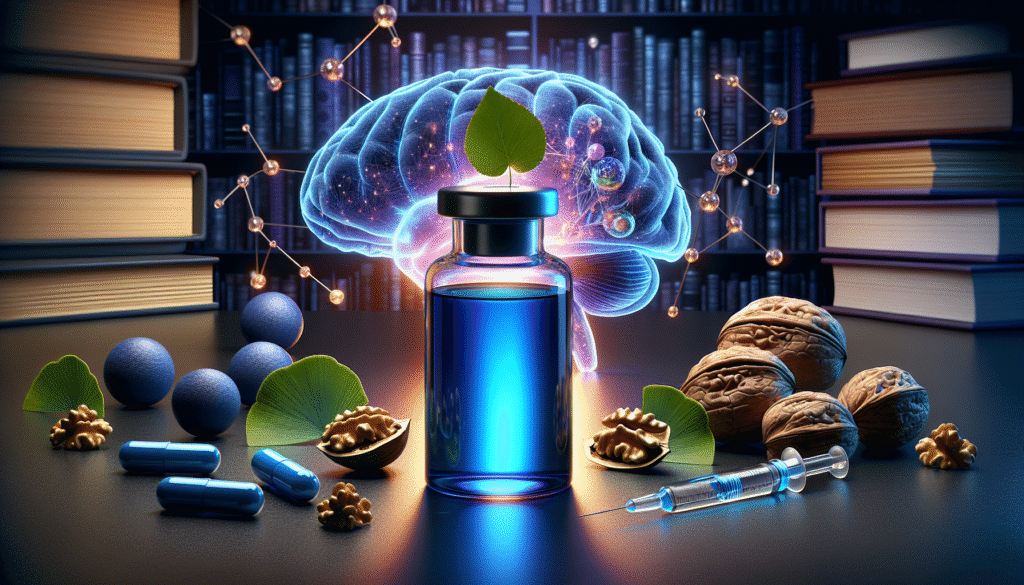
Have you ever wondered how a mild blue dye, originally used for industrial purposes, has now sparked discussions among researchers and cognitive enhancement enthusiasts alike? Methylene Blue (MB) has emerged as a contender in the nootropic landscape, poised against a plethora of other cognitive enhancers. This article will comprehensively examine the attributes of Methylene Blue in comparison to other widely recognized nootropics, ultimately guiding you toward an informed choice for cognitive enhancement.
Understanding Nootropics
Nootropics are substances, both natural and synthetic, that are believed to improve cognitive functions such as memory, creativity, and motivation. These substances have gained popularity in recent years, with many individuals seeking ways to enhance mental performance, whether for academic achievement, professional requirements, or personal development.
Categories of Nootropics
Nootropics can be broadly categorized based on their origins and mechanisms of action:
-
Natural Nootropics: These include herbal supplements and extracts like Ginkgo Biloba, Bacopa Monnieri, and Rhodiola Rosea. They have long been used in traditional medicine and are known for their relatively mild effects.
-
Synthetic Nootropics: This category encompasses various compounds developed in laboratories, such as Racetams (e.g., Piracetam), Modafinil, and, of course, Methylene Blue. These substances often exhibit stronger effects, although they may come with an increased risk of side effects.
Understanding these categories helps provide context as we dissect the specific properties of Methylene Blue relative to other nootropics.
Introduction to Methylene Blue
Methylene Blue is a compound that has been historically used as a dye and an antiseptic. More recently, it has drawn attention for its potential neuroprotective and cognitive-enhancing properties. While it has a long history in medicine, its use as a nootropic is being explored with increasing interest.
Mechanism of Action
Methylene Blue works primarily by enhancing mitochondrial function and acting as an electron carrier in the mitochondrial respiratory chain, which is essential for ATP production. This property is crucial, as efficient energy metabolism in the brain is directly linked to cognitive performance. Additionally, Methylene Blue has antioxidant properties that can protect neural cells from oxidative stress, a leading contributor to cognitive decline.
Benefits of Methylene Blue
-
Cognitive Enhancement: Studies have suggested that Methylene Blue may improve executive functions, working memory, and overall cognitive performance.
-
Neuroprotection: Its antioxidant properties may help shield neuronal cells from damage, potentially playing a role in preventing cognitive decline associated with aging or neurodegenerative diseases.
-
Mood Improvement: Emerging research suggests a link between Methylene Blue and mood enhancement, albeit further studies are needed to solidify this claim.
While Methylene Blue shows promise, it is essential to compare its effects with other popular nootropics to understand its relative efficacy.

Popular Nootropics Compared to Methylene Blue
Below, we’ll compare Methylene Blue with several widely recognized nootropics, looking at their mechanisms, potential benefits, and associated risks.
Modafinil
Modafinil is a prescription medication primarily used to treat sleep disorders such as narcolepsy. It is known for its wakefulness-promoting properties and has become popular among students and professionals seeking improved focus and productivity.
Mechanism of Action
Modafinil primarily acts on the hypothalamus, influencing various neurotransmitters, including dopamine, norepinephrine, and histamine. This area of the brain is crucial for regulating wakefulness and alertness.
Benefits
-
Increased Alertness: Many users report enhanced focus and alertness, making it a go-to option for long study sessions or demanding workdays.
-
Enhanced Memory: Some studies suggest improvements in working memory and executive function.
Risks
- Side Effects: Common side effects include headaches, dizziness, and gastrointestinal issues. More severe but rarer complications can involve skin rashes and allergic reactions.
Racetams (e.g., Piracetam, Aniracetam)
Racetams are a class of nootropics that are often cited for their cognitive-enhancing effects. Among them, Piracetam is the most researched and widely used.
Mechanism of Action
These compounds are believed to enhance the activity of acetylcholine, a neurotransmitter crucial for learning and memory. They may also improve neuroplasticity and blood flow to the brain.
Benefits
-
Memory Enhancement: Users often report improved memory retention and recall.
-
Cognitive Flexibility: Racetams may enhance your ability to switch between tasks and think creatively.
Risks
- Mild Side Effects: Some users experience headaches or gastrointestinal discomfort, especially if taken without proper choline supplementation.
Bacopa Monnieri
This herbal supplement has been used in traditional Ayurvedic medicine for centuries. Bacopa Monnieri is celebrated for its potential to enhance memory and learning.
Mechanism of Action
Bacopa Monnieri is thought to enhance synaptic communication and promote the growth of new neurons. It may also have adaptogenic properties that help the body cope with stress.
Benefits
-
Memory Improvement: Research indicates that it may lead to improvements in memory recall and retention.
-
Stress Reduction: Many individuals report a calming effect that can help reduce anxiety levels.
Risks
- Digestive Issues: Some users experience side effects like nausea or digestive upset, particularly during the initial stages of supplementation.
Ginkgo Biloba
Ginkgo Biloba is another herbal nootropic that has been researched for its cognitive-enhancing properties, particularly in older adults.
Mechanism of Action
Ginkgo is believed to increase blood flow to the brain and has antioxidant properties that protect against oxidative stress. This may improve cognitive functions and protect against age-related decline.
Benefits
-
Improved Blood Flow: Enhanced cerebral circulation may contribute to better cognitive efficiency, especially in aging populations.
-
Anxiety Relief: There is some evidence to suggest that Ginkgo may reduce symptoms of anxiety.
Risks
- Interaction with Anticoagulants: It can increase bleeding risk and should be used cautiously with blood-thinning medications.
Methylene Blue: A Unique Position
While both Methylene Blue and the aforementioned nootropics have their merits, each presents unique advantages and disadvantages. The ongoing interest in Methylene Blue lies in its multi-faceted mechanisms of action, which can provide cognitive benefits, neuroprotection, and potential mood enhancement—all in one compound.
Side Effects and Safety
When considering the use of Methylene Blue, understanding its side effects is crucial. While generally considered safe for research and clinical applications, some individuals may experience side effects, including:
-
Discoloration of Urine: A common benign side effect where urine may turn blue or green.
-
Serotonin Syndrome: Particularly when combined with other serotonergic medications, there is a risk of this serious condition, characterized by confusion, rapid heart rate, and hypertension.
-
Gastrointestinal Distress: Some users report nausea or stomach upset.
Safety measures, such as appropriate dosing and avoiding interactions with other medications, should always be taken into account. Consulting with a healthcare professional before starting any new supplementation regimen is essential.

Choosing the Best Nootropic for Cognitive Enhancement
The best choice of nootropic often hinges on your specific cognitive enhancement needs, lifestyle, and tolerance to certain substances. Here are several factors to consider when making your decision.
Desired Outcomes
Consider what cognitive functions you are looking to enhance. If your primary goal is increased alertness and focus for work or academic purposes, Modafinil may serve you best. On the other hand, if you are interested in long-term cognitive health and protection, Methylene Blue or Bacopa Monnieri might be more suitable options.
Tolerance and Side Effects
Your personal tolerance to various compounds, as well as any potential side effects, should greatly influence your choice. If you have a history of medication sensitivities or gastrointestinal issues, natural opt-outs like Bacopa or Ginkgo may be preferable.
Research and Evidence
The robustness of the research surrounding a nootropic also plays a crucial role in decision-making. Methylene Blue, despite its historical use, is still under extensive investigation for its effects on cognitive enhancement. Conversely, compounds like Bacopa Monnieri and Ginkgo Biloba have more substantial traditional use and literature supporting their efficacy.
Lifestyle Compatibility
Your daily schedule and routine should factor into your choice of nootropic. Some substances may promote wakefulness and energy during the day, while others might work better in an evening or calm context.
The Future of Nootropic Research
Research into Methylene Blue and other nootropics continues to advance rapidly. As scientists uncover more about how these substances affect the brain, new applications and formulations may emerge, expanding your options for cognitive enhancement.
Personalized Nootropic Use
As nootropics become more mainstream, the potential for personalized supplementation driven by genetic or biochemical profiles may very well reshape the landscape. Tailoring nootropic use to match individual neurochemistry may result in more effective cognitive enhancement strategies moving forward.
Final Thoughts
Cognitive enhancement is a nuanced and personal journey that varies significantly among individuals. Methylene Blue presents an intriguing and unique option compared to mainstream nootropics. Its multifaceted benefits could provide significant cognitive improvement with neuroprotective properties. However, individual circumstances will dictate the most suitable option for you.
Ultimately, staying informed through ongoing research and consulting healthcare professionals is critical in determining the best strategy for your cognitive enhancement goals. Whether you choose Methylene Blue or another nootropic, understanding your unique needs and responses will lead you toward the most effective decision for your cognitive health.